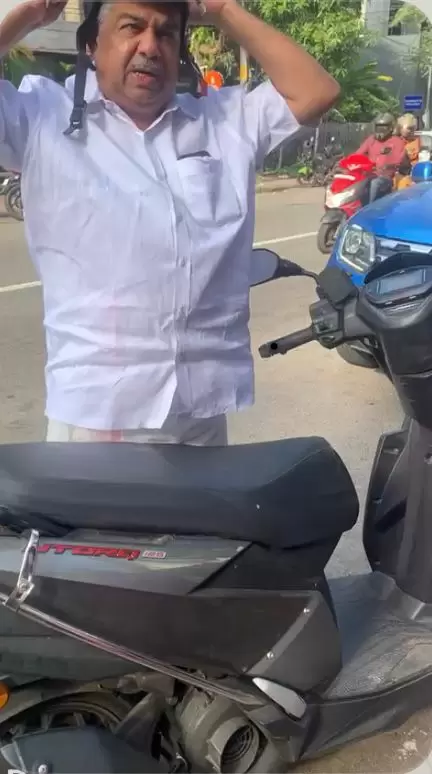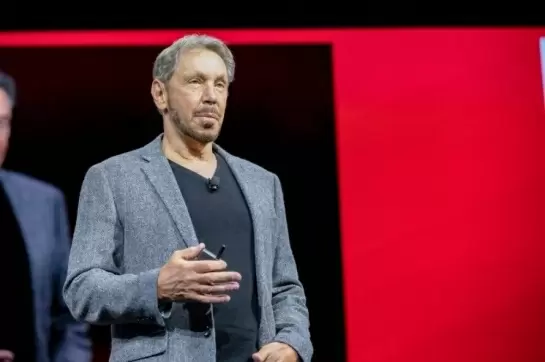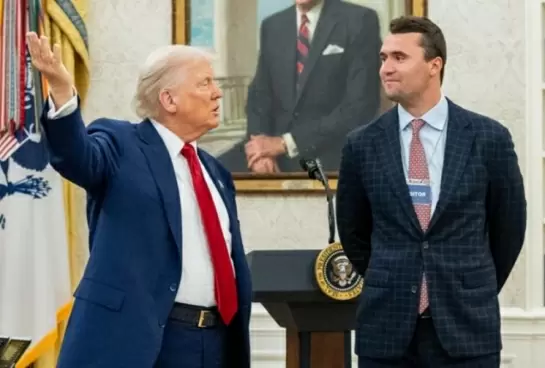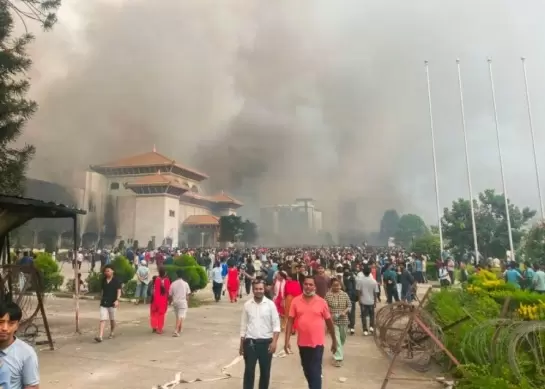Of 'diminished' comrades and Congress
11-October-2021
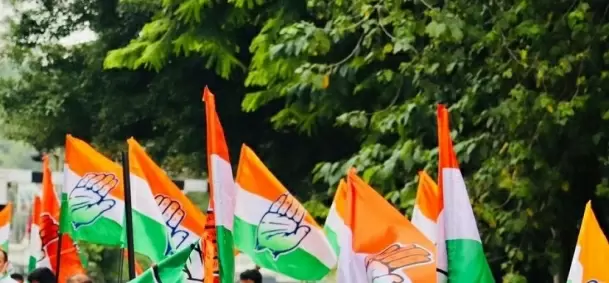
India has sought quicker extradition of Kim Peter Davy alias Niels Holck, from Denmark. This happened on
the diplomatic stage when Danish Prime Minister Mette Frederiksen was in India and holding bilateral talks with her Indian counterpart Narendra Modi. She also hailed Modi as an 'inspiration' and both sides held significant parleys on green politics to
Afghanistan.
The Kim Davy issue actually brings into focus the good old Congress-Communists relationship in India -- even till the mid-1990s. On December 17, 1995, a large consignment of illegal arms including AK-47 rifles and ammunition were dropped from an Antonov
An-26 aircraft and was scattered in the Purulia district of West Bengal.
One need not go into the merits of the allegation that the Congress had conspired to oust the erstwhile Jyoti Basu government in West Bengal. The Marxists' forte was too strong and of course Basu was very powerful and also left to himself, a very
popular leader in his state. But things have changed a lot since then. Now the Congress party's base has shrunk and Communists have, in an ironical turn of events, vanished from West Bengal.
For someone born in 1970 and having seen the hero-cult image of Basu, this journalist had never imagined that the CPI-M could be ever a 'Zero-MLA' strong or weak party in Bengal ever. But this has happened. In 2021 assembly elections, both the CPI(M)-led Left Front and Congress strengths in the 294-member state legislature have been reduced to zero. Now, it is Mamata Banerjee all the way. Importantly, she is seen as 'more Left than the Left' and hence she thrives. Her outfit -- a splinter organisation from the mother' Congress is now trying to have its footprint in different parts of India, including in far off Goa.
In general, over the last few years, the Congress has lost its base across the country. But in the process, the grand old party of India has turned 'more Left'; and in more ways than one. It started with the JNU protest in 2015 and also on other issues Rahul Gandhi is trying to emulate the language of the comrades. Here comes the new challenge. Just as the two communities with the same 'historical and cultural' origins may not necessarily evolve in the same ways, the two political parties trying to fashion a 'modern pro-Communist' look cannot see the growth simultaneously either.
Historians often liken the Hindu civilisation for having shared 'affinities' at the very initial stage with Mesopotamia. But the respective journey and growth trajectories have been different. Hence as and when the Indian National Congress and Communist growths are discussed, we have to see why both have lost ground. This brings us to debate a very important chapter of Indian politics.
The shrinkage of bases of the Congress party and the Indian Communists have also largely created ground for the growth of Hindu fundamentalist forces, like the BJP. Even the rise of regionalist stars like Mamata Banerjee have a typical reasoning of poor performance by the Congress and the Communists. In the 2021 polls, the Trinamool Congress' 200-plus haul would not have been possible had not Congress and Leftists lost all their seats. This downward slippery journey of Indian communists and Congress have also unnerved minorities such as Muslims and Christians.
The decline is not only electoral but also in exerting influence on the sociopolitical mindset.
In the regions where they are losing their grip, the pro-Hindu BJP has gained ground -- of course rising on the 'Moditva phenomenon'. The religious minorities could have been happy about atheism (the Communists) losing ground. But they are irked as a worse and more dangerous form of political ideology has gained power. The BJP with its commitment to make India a nation of 'Hindu hegemony' is now the major opponent of Mamata Banerjee in Bengal. It has 18 of the 42 Lok Sabha seats and three years back, it came to power in Tripura as well by ousting its Communist government in another red bastion.
There is yet another important lesson of politics.
The BJP's 'growing support base' in Kerala also essentially means dwindling popularity of Kerala's two traditional political alliances -- UDF (led by the Congress) and the other LDF, led by Leftists. One need not be a bitter rival or detractor to point out that even in Kerala comrade Pinarayi Vijayan has tinted the Communists' red flag with the hues of saffron, the colour associated with Hindu forces. In other words, he is taking care not to 'offend' Hindu sentiment with the so-called progressive Communist ideas. The Leftists are good at giving a spin to events and they may thus describe this appeasement of Hindu sentiment or religion as pragmatism.
What could happen if Kim Davy is extradited, would be debated another day. The Communists could be anti-religion, but they have long been the real custodians of a secular polity where nearly 80 per cent of its 1.3 billion people are Hindus. The minorities see a protector in Communist leadership although in Kerala, the CPI(M) for long was also known as a pro-Hindu party. Then, you had the Muslim League and the Congress party with a good support base among Catholics.
The electoral data in the last 15 years or so shows that of the three national elections and some state assembly elections -- not only have the Communists weakened but there has been a steady rise of the BJP, including in West Bengal and Tripura. The trend has been modest in Kerala too. In other words, the weakening of Communists signals the rise of Hindutva-ridden macho nationalism.
But pragmatism, as they say, is often a good political substitute for naked opportunism. Thus, the Marxists in the southern state of Kerala have actually sparked off a 'power struggle' between Kerala's two dominant minorities — the Muslims and the Christians. Out of a population of 36 million, Muslims and Christians together constitute about 40 per cent in this state - IANS
Gen Z Protests Push Nepal to Restore Social Media Access After Youth-Led Unrest
Trump Softens Tone on India: “I’ll Always Be Friends With Modi” as Trade Row Deepens
AIADMK Rift Deepens: K.A. Sengottaiyan Demands Return of Expelled Leaders, Ultimatum to EPS
Kerala Custodial Torture Row: Man Alleges Police Tried to Pull Out Teeth With Pliers
Pallavi Joshi Pens Open Letter to President Murmu Over The Bengal Files Release in West Bengal






